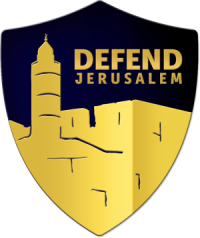Former Israeli hostage Tal Shoham related what it was like to live in Hamas captivity on TBN Israel with Mati Shoshani.
By Rachel Avraham
This weekend on TBN Israel, prominent Israeli journalist Mati Shoshani interviewed former Israeli hostage Tal Shoham, who took Shoshani to Kibbutz Be’eri, where he recounted what he experienced both on October 7th and in Hamas captivity. Shoham told Shoshani that the neighborhood where he once lived is now a “graveyard,” but it used to be a nice place.
He recounted that on October 7th, Hamas abducted his wife Adi, his mother-in-law, his son and his daughter: “They were released after 50 days and me after 505 days. Unfortunately, we lost my father-in-law. When we were just kidnapped, they murdered him. After we were released, we learned that we were the only ones that survived. They murdered everyone in this neighborhood, more than 100 people, men and women but also children. They just murdered them in cold blood.”
Shoham recounted that whenever he came to visit with his wife and children on Thursday night, his father-in-law would stay up till 11:00pm or 1:00am, just to greet them and make sure that they arrived safely. When Shoham entered the ruins of the home of his father-in-law with Shoshani, he related that he felt as if he must be there to greet him, even though “it is just ruins now.”
For his family, Shoham noted that the grieving process is just beginning for they were up until recently busy fighting for his safe return. Shoham related, “My son is nine and a half and my daughter is five and a half. When they were kidnapped, they were eight and three. It’s like I came back to new people. They are teenagers in the bodies of children because of the knowledge how is the real world without the naivety and sadness of children.” Shoham noted that the fact that he was in captivity was made worse for his children due to the fact that they knew what it is to be in captivity: “They’ve been there in captivity. They know.”
When the terrorists from Hamas broke into Shoham’s home, they threw Shoham in the car and separated Shoham from his family. He did not know what happened to his family initially. On his way into captivity, Shoham feared being slaughtered in an ISIS-style execution and refused to cooperate with any such attempt, which led to him instead being paraded down the streets of Gaza, where they gloated how they caught a “Jewish soldier pig.” According to Shoham, “They tried to beat me with clubs and their bare hands, but we just drove from place to place, never staying in one place long enough for them to actually touch me.”
Shoham was imprisoned initially in the home of a high-level Hamas leader for 34 days wearing military-grade hand-cuffs, without having the ability to stretch or anything: “Even today, I have a problem with my shoulder because of it. We were starved to the point of scarvy, which is an unheard of illness in the west for more than 200 years. They starved us. They beat us. They took pleasure in torturing us psychologically, mentally, physically, but the worst torture was not knowing what happened to my family.”
He only learned what happened to his family after 50 days, when he was informed that his wife and children were getting released. This knowledge did bring him release and permit him to focus on his own survival, yet his wife continued to live in fear for Hamas sent her messages stating that if she revealed anything about her experience in captivity, they would murder him: “They also told me that if I spoke up after I got back to Israel, they would send an Arab from the population here in Israel in order to kill me. But now I am starting to feel more and more safe and stopped fearing that they would get to me.” He also feels that in the wake of so much October 7th massacre denials, it is pivotal for him to speak out.
Shoham noted, “I am 73, 74 kilos now. I got out of Gaza 54 kilos. In the peak, I was maybe even less than 50 kilos because of the intentional starvation they inflict upon us.” Shoshani noted that Shoham seems in excellent condition given everything he went through. Shoham noted that he was determined not to let Hamas destroy his inner peace and access his personal life, nor destroy the relationship he had with other people held hostage: “When you are in survival mode and you have one pita bread every 24 hours with two little spoons of white cheese, you can easily become aggressive to your companions trying to get more food or some advantage of basic needs. But we made sure that would not happen to us.”
According to Shoham, he believed that if death came in captivity it would be a blessing for it would be an end to the suffering, but he still did everything that he could to cherish life and to survive for he knew that if he survived, he would come back to Israel “to be again a father to my children and a husband to my wife to do good in the world, so I need to stay intact and I need to stay safe.” He noted that for him, the road to recovery has just began and he cannot predict where he will be in two years from now. However, he emphasized that most of the Israeli people want to live in peace and it is Hamas who booby-trapped the building where he was held, prepared to slaughter numerous Palestinian women and children, just so he would not be able to escape alive.
Photo from TBN Israel: https://www.youtube.com/watch?v=SU_Axf7fpi4
